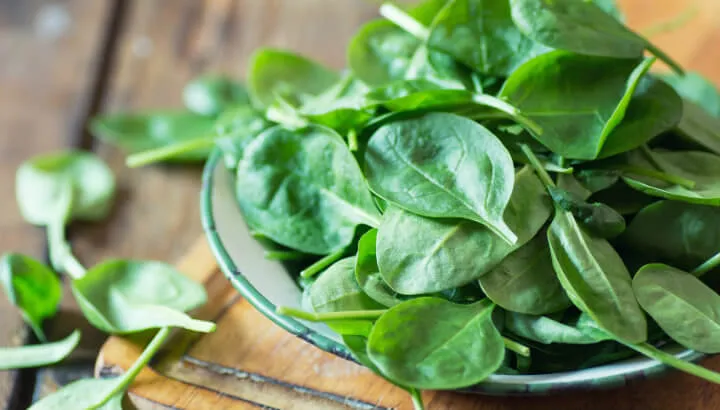
- Share on Facebook26
- Share on Pinterest
- Share on Twitter
No one wants a bad tummy — especially when they’re trying to enjoy all that summer has to offer.
Up here in Canada, we’ve had some record-breaking temperatures this summer, It’s been H-O-T, and while spending time outdoors, food can quickly spoil. Since bacteria thrive in heat, rates of food poisoning surge and a family fun-day can quickly turn into a bacteria-ridden nightmare for the gut.
Whether you’re enjoying a family picnic or hosting a family barbecue, it’s imperative that you remain aware of proper food safety. This is particularly true when temperatures are above a sweltering 90 degrees Fahrenheit.
How food poisoning impacts your microbiome
Here at The Alternative Daily, we often discuss the importance of gut health.
Why?
Well, because gut health has been linked to everything from immune function to mood. Be sure to check out some of these resources to better understand the role your gut plays in relation to your overall health:
- Healthy gut bacteria linked to longevity
- Probiotics, the good bacteria our gut needs
- The unique relationship between a healthy gut and clear skin
Now, when it comes to food poisoning, this term refers to any virus or bacteria that finds its way into your gut, leading to a wide range of undesirable symptoms. Although most cases are reversible, there have been instances where patients develop long-term issues following a bad case of food poisoning.

As stated by the Centers for Disease Control and Prevention, the United States faces 48 million illnesses and approximately 3,000 deaths related to foodborne organisms each year. Unfortunately, even those who are not hospitalized can face lasting consequences, including reactive arthritis: damage to the eyes, kidney failure, urinary tract problems and more.
Four foods that are most likely to negatively impact your gut
From E.coli to Salmonella, harmful organisms have been identified in milk, poultry, meat, seafood, vegetables, fruit and even processed foods. As summer temperatures rise, foods can become a breeding ground for harmful bacteria which, in turn, can wreak havoc on your gut and overall health.
Although you need to practice food safety with all foods, please be particularly mindful of the following four foods.
1. Poultry
Unlike steak, which can be eaten quite rare, undercooked poultry can quickly lead to significant contamination. Often exposing you to two types of bacteria, including Salmonella and Campylobacter, these strains typically live in the feathers and guts of birds (think turkey, chicken and duck).

Although these bacteria thrive on raw poultry, the goods news is, once thoroughly cooked, they’re completed eliminated. Just be sure to cook poultry to an internal temperature of 165 degrees Fahrenheit. You should also immediately wash any cutting boards or utensils that touched raw poultry to reduce your risk of cross-contamination.
Top tip: Once poultry is cooked, any leftover chicken should be refrigerated within two hours. If summer temperatures are above 90 degrees Fahrenheit, please refrigerate within two hours.
2. Leafy greens
This may come as a surprise, but raw leafy greens have caused a number of outbreaks. The contamination of harmful bacteria, including Salmonella, E.coli and Listeria, can occur at varying stages within the supply chain. From the impact of dirty runoff to unhygienic food preparation practices, leafy vegetables have been associated with high-profile outbreaks.

As stated in this review, between 1973 and 2012, there were 606 leafy vegetable-associated outbreaks, resulting in 20,003 illnesses and 19 deaths. Of these, 85 percent were attributed to food preparation in a catering facility or restaurant.
Top tip: To minimize your risk, be sure to always thoroughly wash any vegetable for eating. Always avoid prepackaged salads that have been sitting out at room temperature and do not purchase bags of salad that contain any mushy leaves.
3. Deli meats
Processed meats have been in the spotlight many times before, as they have been linked to various types of cancers. Although you may think that these meats carry a low risk of contamination based on the way they are processed, it is important to note that all meats carry a risk of food poisoning when they are not cooked or stored properly.

Most often, these meats are contaminated when sliced and packaged at deli counters and have even been linked to Listeria-related deaths. Whether you’re cooking up bacon or hot dogs, always consume these types of meats directly after they have been cooked or avoid them all together.
Top tip: Although you should always keep sliced deli meats in the fridge until you consume them, most health experts agree that you should simply not eat these types of processed meats. The same is true for meat pâtés.
4. Shellfish and fish
When fish is not stored at the correct temperature, which is more common than you’d think, especially in more tropical areas, you can expose your body to histamine — a toxin that is produced by the bacteria living in fish. Unfortunately, this compound is not killed during the cooking process.

Shellfish purchased from a store is typically safe. However, it is recommended that you stay away from any shellfish that is caught in an unmonitored area. Clams, oysters, scallops and mussels can become contaminated from sewage and septic tanks.
Top tip: Always source your fish from a reputable source, keep chilled before use and cook to an internal temperature of 145 degrees Fahrenheit. When consuming shellfish, always cook until the shells open and if any remain closed, throw them away.
From rice to dairy, ground beef to eggs, many of the foods we all know and love can cause food poisoning. Always practice food safety and, better yet, consume more foods that promote a healthy gut.
FREE BOOK: Discover how to grow life-saving foods at home with little effort =>
— Krista Hillis
- Share on Facebook26
- Share on Pinterest
- Share on Twitter

